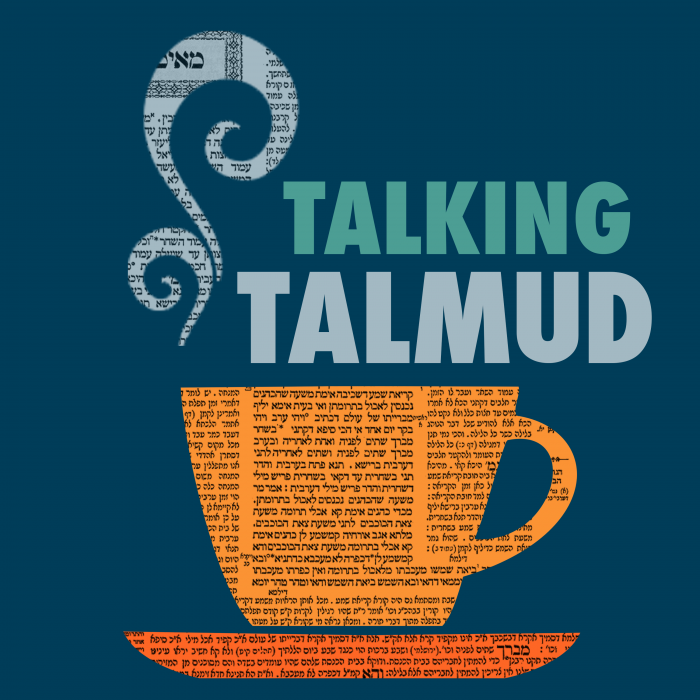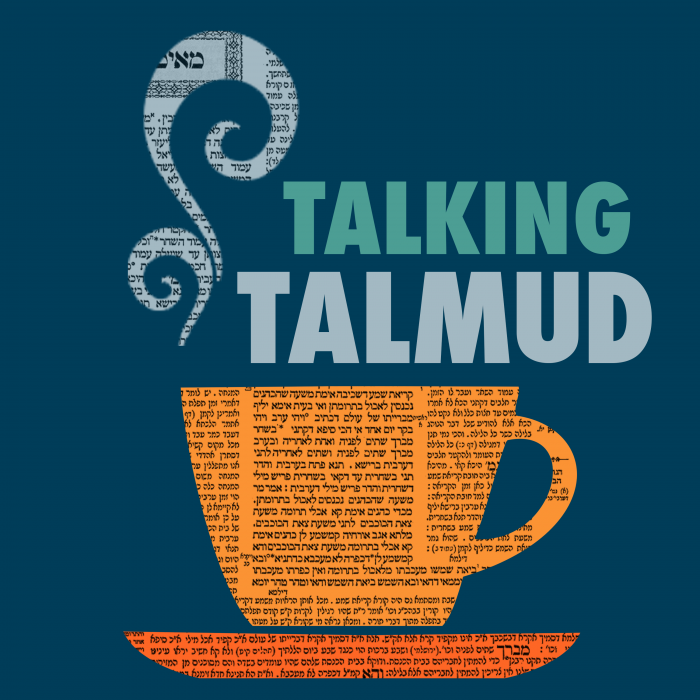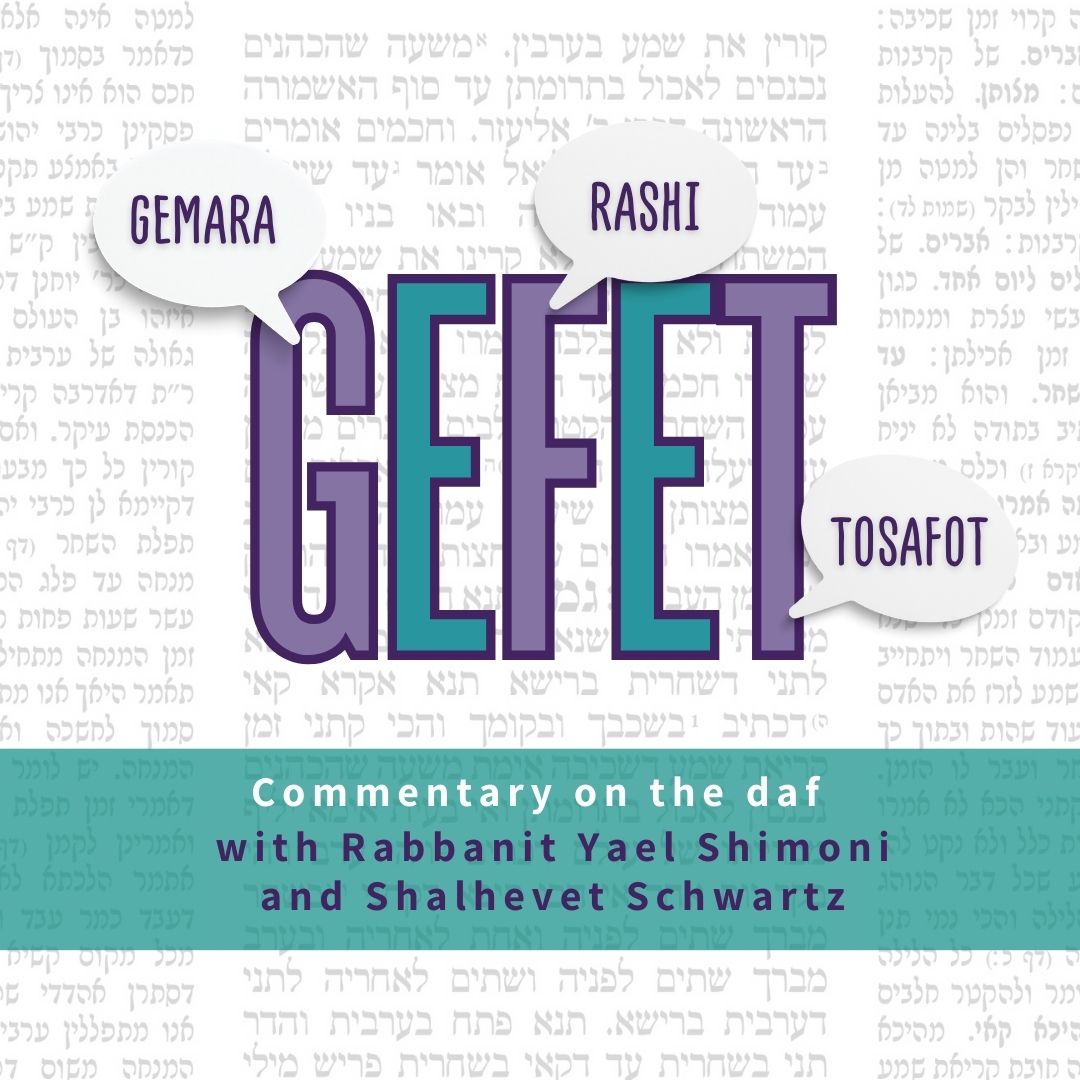Bava Batra 36
״לְדִידִי אֲמַר לִי גּוֹי, דְּמִינָּךְ זַבְנַהּ״ – מְהֵימַן. מִי אִיכָּא מִידֵּי דְּאִילּוּ גּוֹי אָמַר – לָא מְהֵימַן, וְאִילּוּ אָמַר יִשְׂרָאֵל מִשְּׁמֵיהּ דְּגוֹי – מְהֵימַן?!
The gentile told me that he purchased a field from you, this claim is deemed credible. The Gemara asks: Is there any case where if a gentile says it he is not deemed credible, but if a Jew said it in the gentile’s name he would be deemed credible?
אֶלָּא אָמַר רָבָא, אִי אָמַר יִשְׂרָאֵל: ״קַמֵּי דִּידִי זַבְנַהּ גּוֹי מִינָּךְ, וְזַבְּנַהּ נִיהֲלִי״ – מְהֵימַן, מִיגּוֹ דְּאִי בָּעֵי אֲמַר לֵיהּ: אֲנָא זְבֵינְתַּהּ מִינָּךְ.
Rather, Rava said: If a Jew said to the prior owner: A gentile purchased a field from you in my presence, and then he sold it to me, this claim is deemed credible, since if he wanted to, he could have said to the prior owner of the land: I purchased it from you.
וְאָמַר רַב יְהוּדָה: הַאי מַאן דְּנָקֵיט מַגָּלָא וְתוּבַלְיָא, וְאָמַר: ״אֵיזִיל אֶיגְזְרֵהּ לְדִקְלָא דִפְלָנְיָא, דִּזְבֵנְתֵּיהּ מִינֵּיהּ״ – מְהֵימַן, לָא חֲצִיף אִינִישׁ לְמִיגְזַר דִּקְלָא דְּלָאו דִּילֵיהּ.
The Gemara records a series of halakhot pertaining to presumptive ownership. And Rav Yehuda says: This one who is holding a sickle and rope and says: I will go cull the dates from the date tree of so-and-so, from whom I purchased it, is deemed credible. The reason for this is that a person is not so brazen that he would cull the dates from a date tree that is not his.
וְאָמַר רַב יְהוּדָה: הַאי מַאן דְּאַחְזֵיק מִגּוּדָא דַעֲרוֹדֵי וּלְבַר, לָא הָוֵי חֲזָקָה. מַאי טַעְמָא? מֵימָר אָמַר: כֹּל דְּזָרַע נָמֵי עֲרוֹדֵי אָכְלִי לֵיהּ.
And Rav Yehuda says: With regard to this one, who possesses a field only from the fence built to prevent the entry of the wild donkeys and outward toward the public property, this conduct is not sufficient to establish the presumption of ownership. What is the reason? The owner says to himself: Everything that he sows, the wild donkeys will eat as well, and cannot establish the presumption of ownership for him, as he is not profiting from the land as an owner would.
וְאָמַר רַב יְהוּדָה: אֲכָלָהּ עׇרְלָה – אֵינָהּ חֲזָקָה. תַּנְיָא נָמֵי הָכִי: אֲכָלָהּ עׇרְלָה, שְׁבִיעִית וְכִלְאַיִם – אֵינָהּ חֲזָקָה.
And Rav Yehuda says: With regard to one who profited from the land by consuming produce from the first three years after it was planted [orla], during which time one is prohibited from deriving benefit from the produce, this conduct is not sufficient to establish the presumption of ownership. This is also taught in a baraita: With regard to one who profited from the land by consuming orla produce, or profited from the land by consuming produce of the Sabbatical Year, or consumed produce that was prohibited as it was of diverse kinds, this conduct is not sufficient to establish the presumption of ownership.
אָמַר רַב יוֹסֵף: אַכְלַהּ שַׁחַת – לָא הָוֵי חֲזָקָה. אָמַר רָבָא: וְאִי בְּצַוַּאר מָחוֹזָא קָיְימָא – הָוֵי חֲזָקָה.
Rav Yosef says: With regard to one who profited from the land by consuming fodder, i.e., produce that has grown stalks but is not yet ripe, this conduct is not sufficient to establish the presumption of ownership. Rava said: But if the land was located in the neck of Meḥoza, a valley where it was common to harvest unripe produce to feed animals, this conduct is sufficient to establish the presumption of ownership.
אָמַר רַב נַחְמָן: תַּפְתִּיחָא – לָא הָוֵי חֲזָקָה. אַפֵּיק כּוֹרָא וְעַיֵּיל כּוֹרָא – לָא הָוֵי חֲזָקָה.
Rav Naḥman says: Consumption of produce of land that is fissured is not sufficient to establish the presumption of ownership. This is due to the fact that produce does not grow well there, and therefore, owners do not bother to protest if a trespasser uses the land. Therefore, their silence should not be understood as an admission that it belongs to the possessor. Similarly, consumption of produce of land where one expends a kor of seed to sow and retrieves a kor of produce when harvesting it, is not sufficient to establish the presumption of ownership. Here, too, the owners do not bother to protest, as the land is of inferior quality.
וְהָנֵי דְּבֵי רֵישׁ גָּלוּתָא – לָא מַחְזְקִי בַּן, וְלָא מַחְזְקִינַן בְּהוּ.
Rav Naḥman continues: And these members of the household of the Exilarch do not establish the presumption of ownership in our land, as people are afraid to lodge a protest against them, and we do not establish the presumption of ownership in their land, as, due to their wealth, they might not lodge a protest against one who trespasses on their land.
וְהָעֲבָדִים וְכוּ׳. עֲבָדִים יֵשׁ לָהֶם חֲזָקָה?! וְהָאָמַר רֵישׁ לָקִישׁ: הַגּוֹדְרוֹת – אֵין לָהֶן חֲזָקָה! אָמַר רָבָא: אֵין לָהֶן חֲזָקָה לְאַלְתַּר, אֲבָל יֵשׁ לָהֶן חֲזָקָה לְאַחַר שָׁלֹשׁ שָׁנִים.
§ The mishna teaches: And of slaves, presumption of ownership of them is established by using them for a duration of three years from day to day. The Gemara asks: With regard to slaves, is there presumptive ownership of them? But doesn’t Reish Lakish say: With regard to livestock [hagoderot], possession of them does not establish the presumption of ownership, since they wander from place to place. Therefore, one cannot claim that his mere possession of livestock demonstrates ownership as one can with regard to other movable items, because it may have wandered into his property on its own. The same halakha should apply with regard to a slave. Rava said: It is true that possession of them does not establish the presumption of ownership immediately, but there is presumptive ownership of them after three years.
אָמַר רָבָא: אִם הָיָה קָטָן מוּטָּל בַּעֲרִיסָה – יֵשׁ לוֹ חֲזָקָה לְאַלְתַּר. פְּשִׁיטָא! לָא צְרִיכָא, דְּאִית לֵיהּ אִימָּא; מַהוּ דְּתֵימָא: נֵיחוּשׁ דִּלְמָא אִימֵּיהּ עַיֵּילְתֵּיהּ לְהָתָם; קָמַשְׁמַע לַן – אִימָּא לָא מְנַשְּׁיָא בְּרָא.
Rava said: If the slave in question was a small child placed in a cradle, possession of him does establish the presumption of ownership immediately, as it does with regard to other movable items. The Gemara asks: Isn’t that obvious, since he cannot move on his own? The Gemara answers: No, it is necessary in a case where he has a mother. Lest you say: One should be concerned that perhaps his mother brought him up to there, and his being on another’s property does not indicate that the latter is his master. Therefore, Rava teaches us that there is no concern about this possibility, since a mother does not forget her son. Therefore, possession of the infant slave does establish the presumption of ownership.
הָנְהוּ עִיזֵּי דַּאֲכַלוּ חוּשְׁלָא בִּנְהַרְדְּעָא. אֲתָא מָרֵי חוּשְׁלָא, תַּפְסִינְהוּ, וַהֲוָה קָא טָעֵין טוּבָא. אֲמַר אֲבוּהּ דִּשְׁמוּאֵל: יָכוֹל לִטְעוֹן עַד כְּדֵי דְּמֵיהֶן – דְּאִי בָּעֵי, אָמַר: לְקוּחוֹת הֵן בְּיָדִי. וְהָאָמַר רֵישׁ לָקִישׁ: הַגּוֹדְרוֹת – אֵין לָהֶן חֲזָקָה! שָׁאנֵי עִיזֵּי, דִּמְסִירָה לְרוֹעֶה.
The Gemara relates: There were these certain goats that ate peeled barley [ḥushela] in Neharde’a. The owner of the peeled barley came and seized the goats, and was claiming a large sum of money for the barley from the owner of the goats. Shmuel’s father said: He is able to claim up to the value of the goats, since if he wants to, he could say: The goats are purchased and that is why they are in my possession. The Gemara asks: But doesn’t Reish Lakish say: With regard to livestock, possession of them does not establish the presumption of ownership? The Gemara answers: Goats are different, as they are given to shepherds, and do not wander on their own.
וְהָא אִיכָּא צַפְרָא וּפַנְיָא! בִּנְהַרְדְּעָא טַיָּיעִי שְׁכִיחִי, וּמִיְּדָא לִידָא מְשַׁלְּמִי.
The Gemara challenges: But there is morning and evening to consider, when the goats are unsupervised when traveling between the owner and the shepherd, and during those times this halakha of livestock should apply with regard to them. The Gemara explains: The case under discussion took place in Neharde’a, and Arabs [tayya’ei] who steal animals are common in Neharde’a, and goats there are delivered from hand to hand and are never left unsupervised.
רַבִּי יִשְׁמָעֵאל אוֹמֵר: שְׁלֹשָׁה חֳדָשִׁים וְכוּ׳. לֵימָא נִיר אִיכָּא בֵּינַיְיהוּ – דְּרַבִּי יִשְׁמָעֵאל סָבַר: נִיר לָא הָוֵי חֲזָקָה, וְרַבִּי עֲקִיבָא סָבַר: נִיר הָוֵי חֲזָקָה?
§ The mishna teaches that Rabbi Yishmael says: Three months of possession in the first year, three months of possession in the third year, and twelve months of possession in the middle, which are eighteen months, suffices to establish the presumption of ownership. Rabbi Akiva disagrees, and says that one month in the first and third year, in addition to the full middle year, is sufficient. The Gemara asks: Shall we say that the difference between them is whether plowing the land is sufficient to establish the presumption of ownership? As Rabbi Yishmael holds that plowing is not sufficient to establish the presumption of ownership, and three months are needed for the crop to grow, and Rabbi Akiva holds that plowing is sufficient to establish the presumption of ownership, and therefore one month is sufficient.
וְתִסְבְּרָא?! לְרַבִּי עֲקִיבָא – מַאי אִירְיָא חוֹדֶשׁ?
The Gemara asks: And how can you understand their opinions this way? If so, according to Rabbi Akiva, why specifically require a full month?
אֲפִילּוּ יוֹם אֶחָד נָמֵי! אֶלָּא דְּכוּלֵּי עָלְמָא – נִיר לָא הָוֵי חֲזָקָה; וְהָכָא – פֵּירָא רַבָּא וּפֵירָא זוּטָא אִיכָּא בֵּינַיְיהוּ.
Even if he plowed the land for one day in the first and third years respectively, it should be sufficient to establish the presumption of ownership. Rather, everyone agrees that plowing is not sufficient to establish the presumption of ownership, and here the difference between their opinions is whether in order to establish the presumption of ownership one needs to possess the land long enough to grow major produce, which requires three months to grow, or only minor produce, which requires one month.
תָּנוּ רַבָּנַן: נִיר – אֵינוֹ חֲזָקָה. וְיֵשׁ אוֹמְרִים: הֲרֵי זֶה חֲזָקָה. מַאן ״יֵשׁ אוֹמְרִים״? אָמַר רַב חִסְדָּא: רַבִּי אַחָא הִיא – דְּתַנְיָא: נָרָהּ שָׁנָה, וּזְרָעָהּ שְׁתַּיִם, נָרָהּ שְׁתַּיִם, וּזְרָעָהּ שָׁנָה – אֵינָהּ חֲזָקָה. רַבִּי אַחָא אוֹמֵר: הֲרֵי זוֹ חֲזָקָה.
The Sages taught in a baraita: Plowing is not sufficient to establish the presumption of ownership. And there are those who say: This is sufficient to establish the presumption of ownership. Whose opinion is it that the baraita refers to as: There are those who say? Rav Ḥisda said: It is the opinion of Rabbi Aḥa, as it is taught in a baraita: If the possessor plowed the field for a year and sowed it for two years, or if he plowed it for two years and sowed it for a year, it is not sufficient to establish the presumption of ownership. Rabbi Aḥa says: This is sufficient to establish the presumption of ownership, which indicates that he holds that plowing establishes the presumption of ownership.
אָמַר רַב אָשֵׁי: שְׁאֵלִית כׇּל גְּדוֹלֵי הַדּוֹר, וְאָמְרוּ לִי: נִיר – הֲרֵי זֶה חֲזָקָה. אֲמַר לֵיהּ רַב בִּיבִי לְרַב נַחְמָן: מַאי טַעְמָא דְּמַאן דְּאָמַר: נִיר הָוֵי חֲזָקָה? לָא עֲבִיד אִינִישׁ דְּכָרְיבוּ לֵיהּ לְאַרְעֵיהּ – וְשָׁתֵיק. וּמַאי טַעְמָא דְּמַאן דְּאָמַר: נִיר לָא הָוֵי חֲזָקָה? מֵימָר אָמַר: כֹּל שִׁיבָּא וְשִׁיבָּא דִּכְרָבָא, לְעַיֵּיל בֵּיהּ.
Rav Ashi said: I asked all of the great men of the generation about this, and they said to me: With regard to plowing, this is sufficient to establish the presumption of ownership. Rav Beivai said to Rav Naḥman: What is the reason of the one who says that plowing is sufficient to establish the presumption of ownership? Rav Naḥman answered: A person is not apt to have his land plowed by someone else and remain silent. Rav Beivai asked: And what is the reason of the one who says that plowing is not sufficient to establish the presumption of ownership? Rav Naḥman answered: The owner says to himself: Let each and every clump [shibba] of earth enter the plow. That is to say, the owner is amenable to having someone else plow the land for him, and then he will sow and harvest.
שְׁלַחוּ לֵיהּ בְּנֵי פּוּם נַהֲרָא לְרַב נַחְמָן בַּר רַב חִסְדָּא: יְלַמְּדֵנוּ רַבֵּינוּ, נִירָא – הָוֵי חֲזָקָה, אוֹ לָא הָוֵי חֲזָקָה? אֲמַר לְהוּ, רַבִּי אַחָא וְכׇל גְּדוֹלֵי הַדּוֹר אָמְרִי: נִיר – הֲרֵי זֶה חֲזָקָה.
The residents of Pum Nahara sent a question to Rav Naḥman bar Rav Ḥisda. Our teacher, instruct us: Is plowing sufficient to establish the presumption of ownership, or is it not sufficient to establish the presumption of ownership? Rav Naḥman bar Rav Ḥisda said to them: Rabbi Aḥa and all of the great men of the generation say: With regard to plowing, this is sufficient to establish the presumption of ownership.
אָמַר רַב נַחְמָן בַּר יִצְחָק: רְבוּתָא לְמִיחְשַׁב גַּבְרֵי?! הָא רַב וּשְׁמוּאֵל בְּבָבֶל, וְרַבִּי יִשְׁמָעֵאל וְרַבִּי עֲקִיבָא בְּאֶרֶץ יִשְׂרָאֵל, אָמְרִי: נִיר לָא הָוֵי חֲזָקָה!
Rav Naḥman bar Yitzḥak said: Is it a novelty to enumerate great men who maintain an opinion without taking into account that of others? But what of Rav and Shmuel in Babylonia, and Rabbi Yishmael and Rabbi Akiva in Eretz Yisrael, who say: Plowing is not sufficient to establish the presumption of ownership?
רַבִּי יִשְׁמָעֵאל וְרַבִּי עֲקִיבָא – מַתְנִיתִין הִיא; רַב – מַאי הִיא? דְּאָמַר רַב יְהוּדָה אָמַר רַב: זוֹ דִּבְרֵי רַבִּי יִשְׁמָעֵאל וְרַבִּי עֲקִיבָא, אֲבָל חֲכָמִים אוֹמְרִים: חֶזְקָתָהּ שָׁלֹשׁ שָׁנִים מִיּוֹם לְיוֹם. ״מִיּוֹם לְיוֹם״ לְמַעוֹטֵי מַאי? לָאו לְמַעוֹטֵי נִיר – דְּלָא?
The Gemara presents the sources for ascribing to these Sages the opinion that plowing does not establish the presumption of ownership. The basis for ascribing it to Rabbi Yishmael and Rabbi Akiva is the mishna, as the Gemara explained above. What is the basis for ascribing this opinion to Rav? As Rav Yehuda says that Rav says: This ruling that either a month or three months is sufficient use for the first and third years is the statement of Rabbi Yishmael and Rabbi Akiva, but the Rabbis, whose opinion is accepted, say: With regard to a field, its presumption of ownership is established by three years, from day to day. The phrase: From day to day, serves to exclude what? Does it not serve to exclude plowing, which does not establish the presumption of ownership?
שְׁמוּאֵל – מַאי הִיא? דְּאָמַר רַב יְהוּדָה אָמַר שְׁמוּאֵל: זוֹ דִּבְרֵי רַבִּי יִשְׁמָעֵאל וְרַבִּי עֲקִיבָא, אֲבָל חֲכָמִים אוֹמְרִים: עַד שֶׁיִּגְדּוֹר שָׁלֹשׁ גְּדֵירוֹת, וְיִבְצוֹר שָׁלֹשׁ בְּצִירוֹת, וְיִמְסוֹק שָׁלֹשׁ מְסִיקוֹת. מַאי בֵּינַיְיהוּ? אָמַר אַבָּיֵי: דֶּקֶל נַעֲרָה אִיכָּא בֵּינַיְיהוּ – שֶׁעוֹשֶׂה שָׁלֹשׁ פְּעָמִים בְּשָׁנָה.
What is the basis for ascribing this opinion to Shmuel? As Rav Yehuda says that Shmuel says: This ruling that either a month or three months is sufficient use for the first and third years is the statement of Rabbi Yishmael and Rabbi Akiva, but the Rabbis, whose opinion is accepted, say: He does not establish the presumption of ownership until he harvests three date crops, or harvests three grape crops, or harvests three olive crops. This indicates that Shmuel holds that plowing does not establish the presumption of ownership. What is the difference between the opinions of Rav and Shmuel? Abaye said: The difference between their opinions is whether three harvests of a young [na’ara] date tree, which produces a crop three times in one year, establishes the presumption of ownership.
אָמַר רַבִּי יִשְׁמָעֵאל: בַּמֶּה דְּבָרִים אֲמוּרִים – בִּשְׂדֵה הַלָּבָן. אָמַר אַבָּיֵי: מִדְּרַבִּי יִשְׁמָעֵאל נִשְׁמַע לְרַבָּנַן, הָיוּ לוֹ שְׁלֹשִׁים אִילָנוֹת – מִמַּטַּע עֲשָׂרָה לְבֵית סְאָה; אָכַל עֲשָׂרָה בְּשָׁנָה זוֹ, וַעֲשָׂרָה בְּשָׁנָה זוֹ, וַעֲשָׂרָה בְּשָׁנָה זוֹ – הֲרֵי זוֹ חֲזָקָה.
§ The mishna teaches that Rabbi Yishmael said: In what case is this statement, that eighteen months are required to establish the presumption of ownership of a non-irrigated field, said? With regard to a white field, i.e., a grain field. But with regard to an orchard, harvesting three different crops suffices. Abaye said: From the opinion of Rabbi Yishmael we infer the proper understanding of a detail of the opinion of the Rabbis who disagree with him, and hold that three years of harvesting one crop is required to establish the presumption of ownership even with regard to an orchard: If one had thirty trees of one type in a field, and they were planted with a density of ten trees per each area required for sowing one se’a of seed [beit se’a], and one consumed the produce of ten trees in this first year, and of another ten trees in this second year, and of another ten trees in this third year, this is sufficient to establish the presumption of ownership.
























